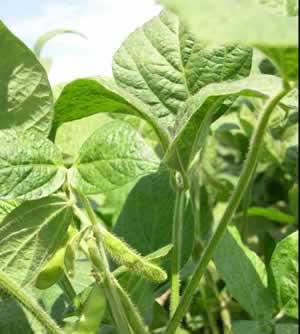CROP PHYSIOLOGY & MANAGEMENT DIRECTORY
- Grain Crops
- Crop Physiology
- Organic Grain Cropping Systems
- Extension-Grain Crops
- Tobacco
- Extension-Dark Tobacco
- Extension-Tobacco
- Seed Science
- Seed Science and Technology
- Soil Science
- Soil Fertility/Plant Nutrition
- Soil Management and Fertility
- Weed Science
|

Introduction
Crop production must increase substantially in the next 20 years to meet the demands of an increasing world population in a sustainable manner. Increasing crop yields requires constant development of new crop varieties and changes in management practices to adjust to new cultivars, pests, weed problems, and changes in environmental conditions. Crop yields have increased steadily over much of the past century, but continuing these increases above the current high levels will be difficult.
Continued progress will require input from many areas of agriculture, but crop physiologists studying processes that determine yield at the whole plant-plant community level will be key players in meeting this challenge. Crop production systems of the future may be quite different than those that fed the world in the past, and development of these innovative systems will require a thorough basic understanding of the principles of yield production. Fundamental research in crop physiology will provide the foundation for this effort.
|
What is Crop physiology?
Crop physiology is the study of the plant processes responsible for the growth, development, and production of economic yield by crop plants. Crop physiologists focus on whole plants and plant communities - not individual plant parts, organs, or cells because most of the processes that control yield operate at the whole plant - plant community level. Consequently most crop physiology research is conducted in growth chambers, greenhouses, or in the field. Crop physiologists investigate processes responsible for the primary productivity of crop communities (e.g., photosynthesis, respiration, light interception, nutrient utilization), how the products of these processes are converted to economic yield (e.g., sink size, seed growth, partitioning, senescence), and developmental processes that define the length of critical growth stages by controlling flowering and maturation. Crop physiology is an integrative science, bringing information from a variety of disciplines (soil science, ecology, plant physiology, botany, statistics, micro meteorology, modeling) to bear on problems of yield improvement and crop management.
Crop physiology has an important role to play in generating the large increases in yield that will be needed in the next 20 years to feed a burgeoning world population. Increasing total production in a sustainable manner without increasing the land area under cultivation represents a huge challenge that can only be met by integrative investigations at the whole plant-plant community level. Crop physiologists will make significant contributions to meeting this challenge.
Dennis B. Egli
|